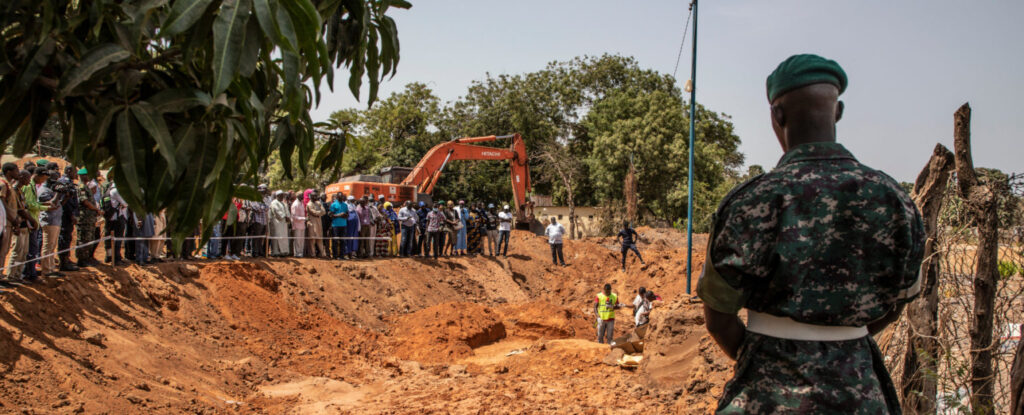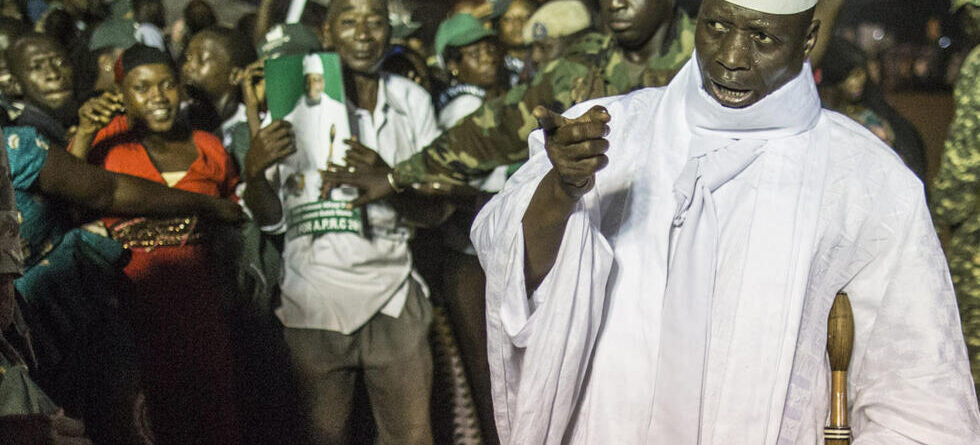The special tribunal explained as Jammeh’s victims move closer to justice
By Kaddy Jawo
The regional leadership of ECOWAS has approved a special tribunal, bringing hope for justice to more than 200 individuals confirmed to have been murdered by the repressive regime of Yahya Jammeh.
In addition to extrajudicial killings, the regime systematically tortured critics and subjected dozens of women to rape and other forms of sexual violence. Since Jammeh’s fall in December 2016, he has been in exile in Equatorial Guinea. Meanwhile, the succeeding administration and human rights defenders worldwide continue to work tirelessly to hold him accountable.
Despite frustrations and scepticism about whether justice will ever be served, the approval of the special tribunal represents a significant step forward and renews hope for those seeking justice.

ECOWAS decision
During the 66th Session of the Authority of the Economic Community for West African States (ECOWAS) Heads of State and Government meeting in Abuja, Nigeria, the regional bloc approved the establishment of the Special Tribunal for The Gambia to prosecute perpetrators of gross human rights violations.
According to the Ministry of Justice of the Gambia, the decision also includes the adoption of the Statute for the Tribunal to ensure justice and accountability for gross atrocities committed between July 1994 and January 2017. It has been described as the first time for the ECOWAS to partner with a member country to establish an internationalised tribunal to prosecute such crimes.
Context of the decision
One of the most notable factors that led to the election defeat of Jammeh in December 2016 was his human rights record, including extrajudicial killings his regime continued to commit against Gambians. Following his defeat, the Truth Reconciliation and Reparations Commission (TRRC) was set up by his successor to investigate all human rights abuses perpetrated against Gambians and other citizens between July 1994 and January 2017.
Among the major crimes allegedly committed by Jammeh’s special killer squad ‘The Jungulars’ are extrajudicial killings, torture and sexual violence, enforced disappearances, fake HIV and Aids treatment causing deaths, and the 2005 massacre of over 50 West African migrants, among others.
The outcome of the two-and-a-half years of hearings and investigations found that at least 240 persons were found to have been murdered by state agents under his rule. The commission submitted its final report to the government in November 2021 for implementation.
On May 25, 2022, the government released its white paper showing how it intended to implement the TRRC’s 265 recommendations across the entire 22 thematic issues. Out of that total, the government has ACCEPTED 200, PARTIALLY ACCEPTED 4, NOTED 26 and REJECTED 2.
Legal framework for justice
In April this year, the National Assembly passed two bills into law: the Special Accountability Mechanism Bill and the Special Prosecutor’s Office Bills, which created the grounds for prosecuting Jammeh and some of his accomplices.
The Special Accountability Mechanism Act 2024 outlines the institutionalised framework for implementing the justice and accountability component of the TRRC’s accepted recommendations, including a Special Prosecutor’s Office (SPO), a Special Tribunal modelled on internationalised courts, and the Special Criminal Division of the High Court.
The Special Accountability Mechanism Act 2024 (SAM) will ensure effective investigation and prosecution of cases involving serious human rights violations in the country between July 1997 and January 2017. On the other hand, the Special Prosecutor’s Office Act 2024 (SPO) shall establish the SPO as an independent entity with the authority to investigate and prosecute cases of serious human rights violations, as well as domestic and international crimes specified in the government White Paper.
“If swiftly implemented, it could mark a turning point in the campaign to bring Jammeh and his accomplices to justice,” says the International Commission of Jurists (ICJ) following the ECOWAS Authority’s decision earlier this month.
Functioning of the tribunal
As explained by the International Commission of Jurists per the approved statutes, the Special Tribunal will be based in The Gambia but may conduct trials in other countries as needed. A panel of three judges, including one Gambian, will oversee the proceedings. A Special Prosecutor, to be appointed next year under existing Gambian law, will manage significant Jammeh-era cases, while other matters will go to a new division of the High Court.
The tribunal is set to operate under a hybrid model, blending domestic and international law. Guided by the Special Accountability Mechanism Act 2024, it will prosecute crimes against humanity, serious violations of Gambian law, and crimes against the administration of justice committed between July 1994 and January 2017.
Jammeh’s extradition call
“This hybrid design ensures regional legitimacy and adds diplomatic weight to extradition requests,” says lawyer Salieu Taal, a former president of the Gambia Bar Association and member of the ECOWAS-Gambia Technical Committee.
Yahya Jammeh’s extradition remains a challenge. Since his exile to Equatorial Guinea in 2017, the former dictator has evaded justice. Despite international calls for his accountability, Equatorial Guinea has resisted extradition requests.

“Extraditing Jammeh is no small task,” Taal admitted. “But the ECOWAS-backed tribunal lends international legitimacy, increasing pressure on Equatorial Guinea to cooperate.”
The Gambia Victim Centre has also urged holding trials in a neutral location, such as Ghana, to minimise potential political interference and ensure fairness. While Jammeh remains at large, efforts to prosecute his associates have gained traction.
Former officials like Ousman Sonko, Jammeh’s interior minister, and Bai Lowe, a member of Jammeh’s killer squad, have both been convicted and jailed in Switzerland and Germany, respectively, while the trial involving Michael Sang Correa will likely proceed in the United States next year thanks to the Universal Jurisdiction legal principle.
“These cases demonstrate that justice transcends borders,” Taal said. “The tribunal will build on these efforts to hold all perpetrators accountable.”
He also stresses that the Gambia is in a position to learn from other similar tribunals in Sierra Leone and Cambodia, which successfully prosecuted war crimes and crimes against humanity.
“We can learn a lot from their experiences. Robust legal frameworks, steady funding, and comprehensive witness protection systems are essential. This tribunal is more than just a court; it’s a symbol of hope for the victims who’ve waited too long for justice. It sends a clear message: Impunity has no place in The Gambia.”
Long overdue victory
Reacting to developments, Kebba Jome of the Gambia Victim Centre described the approval of the special tribunal as a long-overdue victory. “We are grateful to ECOWAS for approving the Special Tribunal despite earlier speculations of rejection,” Jome said.
The Victim Centre was established in 2017 and has been a crucial advocate for those who suffered under Jammeh’s brutal regime. With over 1,500 victims registered, including survivors of torture, extrajudicial killings, and sexual violence, the Centre has been pivotal in amplifying voices, providing psychosocial support, and advocating for reparations.
Several victims later died following the fall of Jammeh due to torture meted out to them, including the members of the United Democratic Party such as Lang Marong, Femi Peters, Nogoi Njie, and many others, without getting justice.
In this justice-seeking process, Jome expects that victim inclusion will be a cornerstone of the tribunal’s mandate. “We will provide witnesses and ensure their protection throughout the process.”
“This isn’t just about punishing perpetrators. It’s about restoring faith in the rule of law and ensuring that such atrocities never happen again.”
As the process unfolds, the tribunal’s success will not only deliver long-overdue justice but also set a powerful precedent for addressing human rights violations in Africa and beyond.

